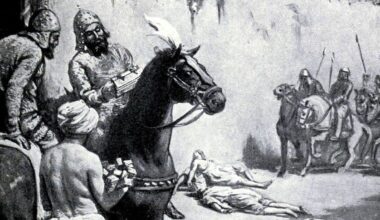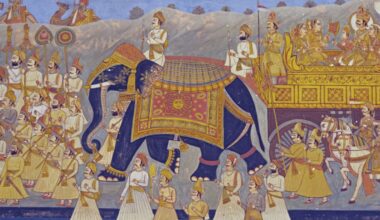The death of Alexander the Great remains one of history’s enduring mysteries, shrouded in speculation and diverse theories. A legendary conqueror whose life was filled with triumphs, Alexander’s demise at a relatively young age continues to captivate historians, sparking debates and inquiries into the circumstances surrounding his death.
The Historical Context
Alexander the Great, ruler of a vast empire stretching from Greece to India, died in 323 BC in Babylon, at the age of 32. His sudden death plunged the ancient world into uncertainty and triggered a power struggle for succession.
Mysterious Illness
The primary historical account, provided by ancient historians like Plutarch and Arrian, suggests that Alexander fell ill after a banquet in Babylon. His symptoms included a sudden fever, abdominal pain, and progressive weakness.
Theories Surrounding His Death
Numerous theories attempt to explain the cause of Alexander’s death. Some historians propose natural causes such as malaria, typhoid fever, or even a rare autoimmune disorder like Guillain-Barré Syndrome.
Poisoning Conspiracy
Conspiracy theories speculate that Alexander might have been poisoned. Some narratives suggest poisoning by his inner circle due to political motives, while others propose external enemies seeking to eliminate the powerful ruler.
Alcohol as a Factor
Another theory revolves around excessive alcohol consumption during the banquet, leading to alcohol poisoning or complications arising from a prolonged drinking spree.
Lack of Concrete Evidence
The lack of conclusive evidence in historical records adds to the mystery surrounding Alexander’s death. Ancient sources often contain conflicting accounts or vague details, leaving room for interpretation and speculation.
Cultural Beliefs and Omens
In the Hellenistic world, Alexander’s death was sometimes attributed to divine retribution or omens, linking his demise to his audacious ambition and the hubris of conquering beyond the limits of mortal men.
Legacy and Aftermath
Alexander’s death resulted in a power struggle among his generals, leading to the fragmentation of his empire into smaller kingdoms ruled by his successors, the Diadochi.
Modern Medical Perspectives
Modern medical experts have attempted to diagnose Alexander’s cause of death based on historical accounts, speculating on diseases like West Nile virus or even arsenic poisoning.
Ongoing Speculation and Intrigue
Despite centuries of research and investigation, the exact cause of Alexander the Great’s death remains an enigma, perpetuating ongoing interest and scholarly debate in historical circles.
The death of Alexander the Great stands as an enduring historical mystery, offering a glimpse into the complexities of ancient life, the uncertainties of mortality, and the enduring allure of unraveling historical enigmas. As historians continue to analyze and interpret ancient sources, the circumstances surrounding the legendary conqueror’s demise continue to fascinate and intrigue both scholars and history enthusiasts alike.










